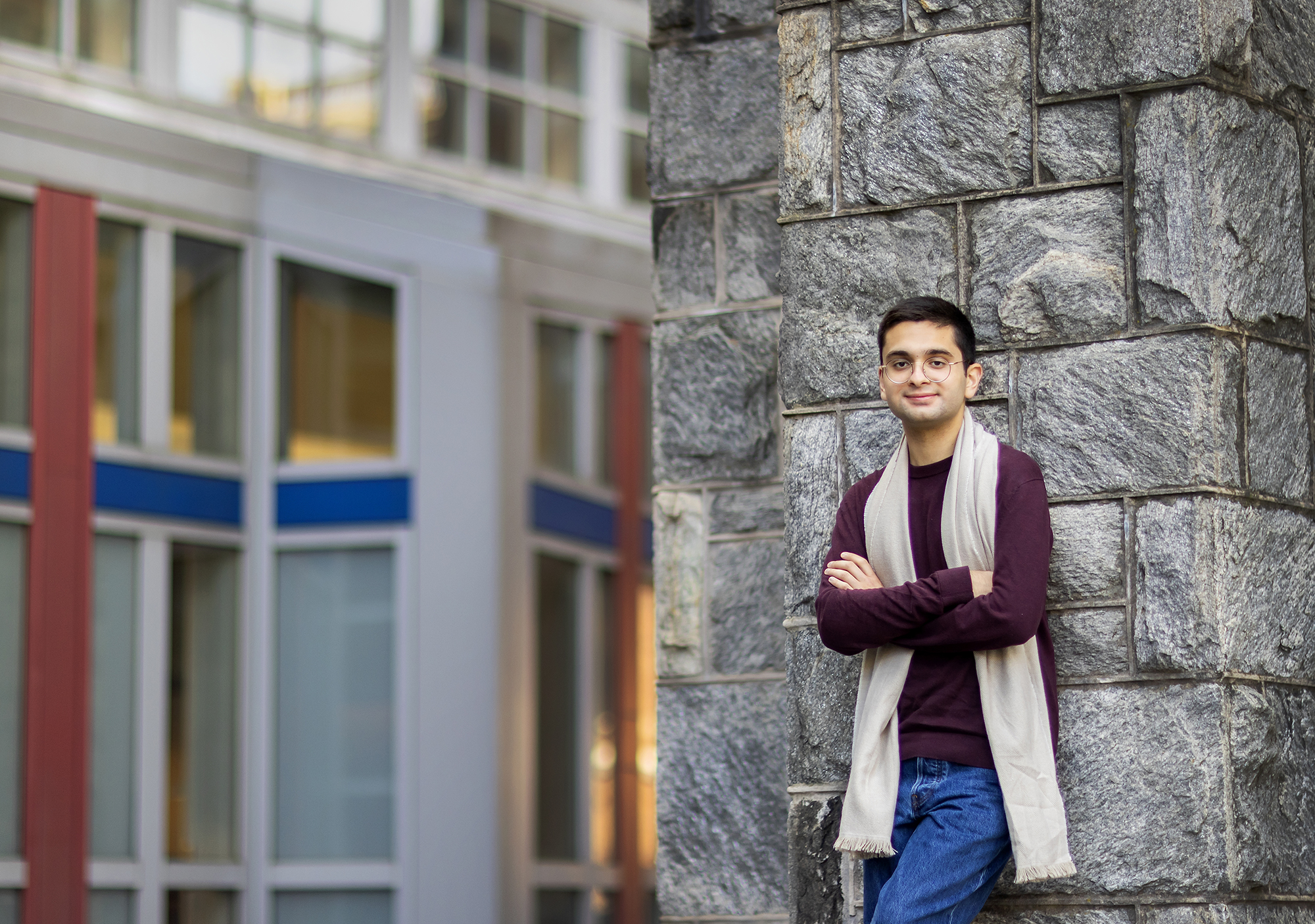
- Who
Penn third-year Zaid Tabaza became a vegan in 2021. Though the idea interested him long before that, he didn’t consider it possible for his life. “I’m from Amman, Jordan, and food is a very important part of cultural identity,” he says. “I was afraid I would have to give up certain foods that were meaningful to me, that were a big part of the cuisine I grew up with. Also, in my culture, hospitality is a core value.” Tabaza worried that changing his diet would mean uncomfortable moments with family and friends having to turn down the food they offered him. Then a class assignment his first year at Penn asked each student to stop eating meat for a week. “It was more manageable than I thought,” says Tabaza, who is studying cognitive science and computer science in the College of Arts and Sciences. Soon he was having long conversations with his parents about veganism and immersing himself in the whys and hows of this practice.
- What
An assignment in another Penn course, Food in the Islamic Middle East, with Near Eastern Languages and Civilizations professor Heather Sharkey, turned Tabaza’s personal interest into a research project. “I knew I wanted to write something on the intersection of Middle Eastern identity and veganism,” he says. Though he was aware of Bayt Sara, the first vegan restaurant in Amman, he found little else on the subject until some sleuthing turned up the vegan Hayek Hospital in Beirut, Lebanon. With guidance from Sharkey, Tabaza used the two case studies as a window into plant-based diets in the Middle East. “It was a way to challenge the idea that this is something new and raise awareness on the region’s deep history of plant-based diets,” he says. Through this work, Tabaza determined that, historically, such diets were common in the region for their curative potential and wide availability, since only the richest could afford meat. From those roots sprouted the veganism Tabaza found in Jordan and Lebanon today.
- Why
In the Middle East, veganism continues to expand, Tabaza says. “My goal was to trace that evolution through time. And even since I wrote my paper, new vegan restaurants have opened in Amman.” Beyond widening his lens on veganism—and learning about new places to eat, too—Tabaza says he wanted to debunk the idea that Middle Eastern culture and veganism don’t mesh. “When I interviewed the restauranteur of Bayt Sara,” he says, “I asked her about the significance of veganism to her, about what she thinks it means in the Middle East nowadays. She said that, like the rest of the world, it continues to grow there, that people adopt a vegan diet for a multitude of reasons.” Tabaza started down this path because he disliked the taste of meat, but his reasoning evolved to include environmental ethics and empathy for non-human animals, too. He says he hopes his research shows others that not eating meat doesn’t have to mean losing part of their identity.







